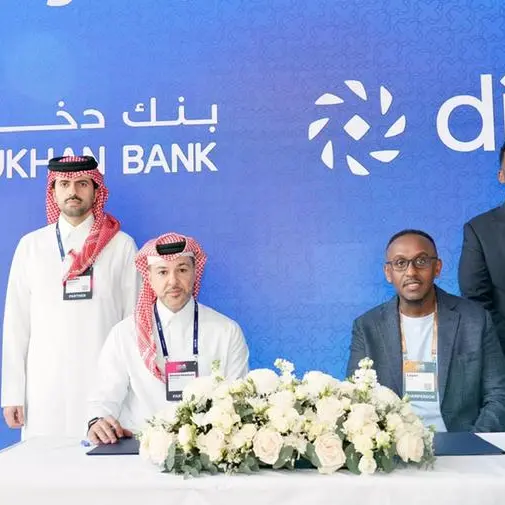PHOTO
Dubai, UAE –Red Hat, Inc., the world's leading provider of open source solutions, today introduced an expanded set of management capabilities to Red Hat Insights for Red Hat Enterprise Linux, designed to help reduce enterprise Linux complexity across the hybrid cloud without slowing innovation. These enhancements extend Red Hat’s vision to make the world’s leading enterprise Linux platform more accessible, manageable and maintainable wherever organizations operate.
Red Hat’s own research indicates that by combining Red Hat Insights existing predictive analytics with these new and enhanced management capabilities, IT organizations can find IT issues up to 90% faster and remediate them nearly 66% faster across the hybrid cloud. This effectively lets Red Hat Insights serve as a skills leveler for IT organizations so that even as they face resource constraints, systems can more readily be kept online and free of critical flaws without extensive Linux expertise.
According to IDC , “Customers desire flexibility in their deployments and prefer to limit the number of operating systems that they need to support with their staff” and “Supporting multiple redundant operating system environments could cost an enterprise significantly more both directly in terms of licensing and maintenance and in terms of staff overhead that is needed to maintain them.”
Operating system flexibility and stability are vital as IT organizations continue to do more with fewer resources and budgets. Beyond just maintaining day-to-day operations, CIOs must also scale IT systems to support new revenue-generating services. Existing resources and skills must be extended, which, to Red Hat, starts with lowering the skill requirements for managing Linux estates without limiting innovation.
A simplified Red Hat Enterprise Linux management experience
Available through any web browser via console.redhat.com, the enhancements to Red Hat Insights distill managing Red Hat Enterprise Linux deployments across the hybrid cloud into a single, intuitive user interface. These expanded capabilities build on the information provided by existing Red Hat Insights’ predictive analytics, which can detect potential bugs, misconfigurations or security vulnerabilities using Red Hat’s decades of experience running Linux platforms in critical production environments.
When Insights detects one of these issues, IT teams can use this new streamlined management experience to more quickly fix security and critical bugs without needing Red Hat Satellite Server and act on server groups simultaneously using patch templates. Systems administrators of all levels can detect, assess and push fixes for potential problems from one interface without ever interacting with the command line or having a deep understanding of Linux management systems like Red Hat Satellite Server. Red Hat Satellite remains Red Hat’s offering for advanced Linux management capabilities while also supporting disconnected or air-gapped deployments.
Red Hat Insights image builder service also helps lower the skills needed for managing Linux estates by enabling IT teams to more quickly and easily build standardized, optimized operating system images that adhere to organization-specific needs for security and compliance. These images can then be readily deployed across the breadth of the hybrid cloud, from datacenter to public clouds to edge, all from the same interface.
Now, image builder enables IT organizations to add their own software to “gold” images for deployment. Even if a specific version of a tool or component is not native to Red Hat Enterprise Linux, it can still be included in images built with image builder for rapid dissemination, making it far easier to build and launch images that match an enterprise’s own unique standards.
Availability
The new management capabilities of Red Hat Insights are included with every Red Hat Enterprise Linux subscription and can be used today via console.redhat.com.
Supporting Quote
Gunnar Hellekson, vice president and general manager, Red Hat Enterprise Linux, Red Hat
“The demands of managing Linux across the hybrid cloud are stretching the ability of resource-constrained IT departments to keep pace. CIOs need to be able to extend existing skill sets and lower the skill barriers for overseeing Linux estates, which is exactly what the management capabilities of Red Hat Insights are designed to do. From a single web console, systems administrators of all skill levels can detect, analyze and patch potential issues and push standardized operating systems to whatever footprint operations require, simplifying the complexities of Linux management without limiting the ability to innovate.”
-Ends-
About Red Hat, Inc.
Red Hat is the world’s leading provider of enterprise open source software solutions, using a community-powered approach to deliver reliable and high-performing Linux, hybrid cloud, container, and Kubernetes technologies. Red Hat helps customers integrate new and existing IT applications, develop cloud-native applications, standardize on our industry-leading operating system, and automate, secure, and manage complex environments. Award-winning support, training, and consulting services make Red Hat a trusted adviser to the Fortune 500. As a strategic partner to cloud providers, system integrators, application vendors, customers, and open source communities, Red Hat can help organizations prepare for the digital future.
Forward-Looking Statements
Except for the historical information and discussions contained herein, statements contained in this press release may constitute forward-looking statements within the meaning of the Private Securities Litigation Reform Act of 1995. Forward-looking statements are based on the company’s current assumptions regarding future business and financial performance. These statements involve a number of risks, uncertainties and other factors that could cause actual results to differ materially. Any forward-looking statement in this press release speaks only as of the date on which it is made. Except as required by law, the company assumes no obligation to update or revise any forward-looking statements.
Red Hat, Red Hat Enterprise Linux and the Red Hat logo are trademarks or registered trademarks of Red Hat, Inc. or its subsidiaries in the U.S. and other countries. Linux® is the registered trademark of Linus Torvalds in the U.S. and other countries.




















